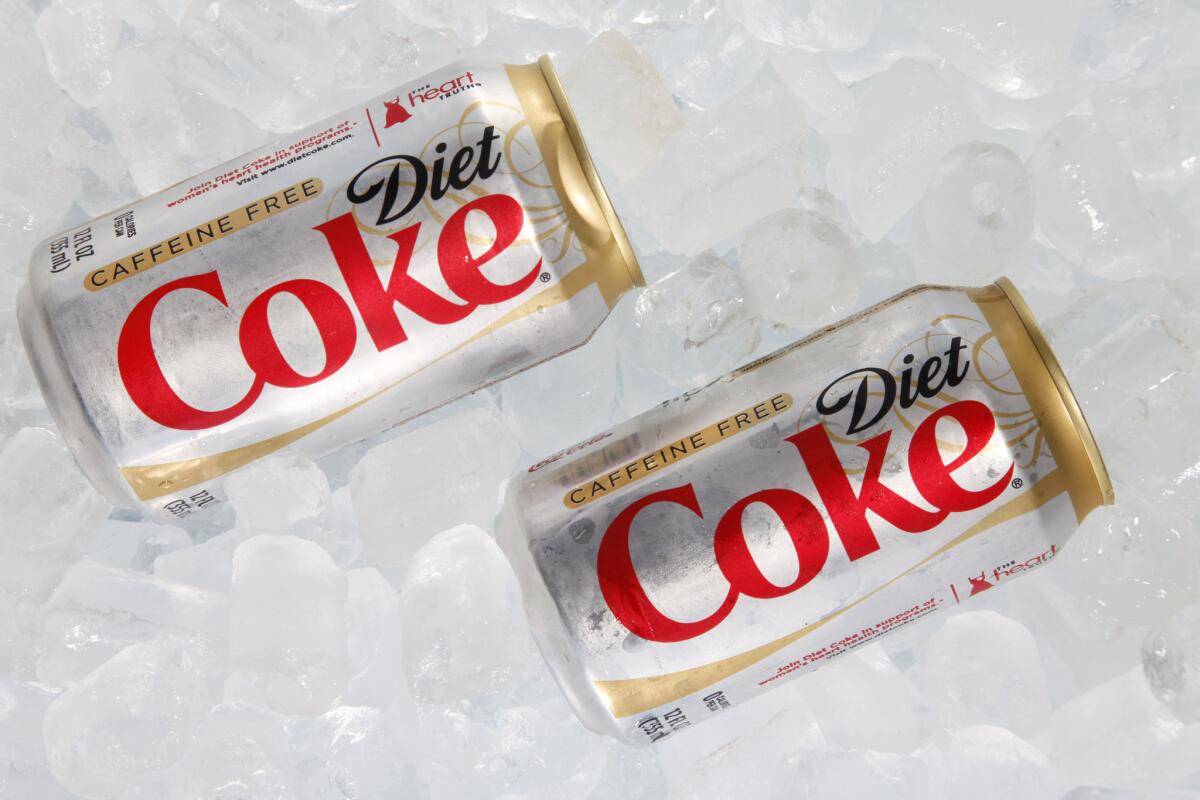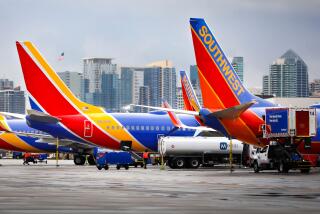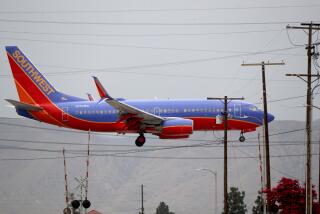Flight attendant who denied unopened soda can to Muslim will no longer serve United customers

The flight attendant who refused to give a Muslim an unopened can of soda because she said it could be used “as a weapon” will receive additional sensitivity training before returning to her position, but will not serve United Airlines customers in the future, her employer said.
The dispute arose Friday after Tahera Ahmad, a Muslim American chaplain at Northwestern University, claimed she was told she couldn’t have the unopened can of Diet Coke she requested because passengers “may use it as a weapon” on the plane.
When the man sitting next to her received an unopened can of beer, Ahmad said she protested. A fellow passenger then allegedly yelled, “You Muslim, you need to shut the … up,” and said that “You know you would use it as a weapon.”
Ahmad was wearing a hijab on the flight from Chicago to Washington, D.C., according to Ahmed Rehab, executive director of the Chicago chapter of the Council on American Islamic Relations, which is representing Ahmad in the dispute and held a joint press conference with her Wednesday. Both the pilot and the flight attendant apologized to Ahmad after the flight, she said.
Both United Airlines and the company that was operating the flight initially characterized it as a “misunderstanding regarding a can of diet soda,” a statement Ahmad and others pilloried on social media as trivializing. United says it has apologized to Ahmad, and will also be sending her a written apology.
According to a United statement released Wednesday, the flight attendant “will no longer serve” United customers.
“United does not tolerate behavior that is discriminatory – or that appears to be discriminatory – against our customers or employees,” the company said in the statement. Employees at United and Shuttle America, the company that employed the flight attendant and was operating the flight, already undergo annual cultural sensitivity training, the airline said.
In a statement Wednesday, Republic Airways Holdings, which owns Shuttle America, said it “deeply regrets the poor judgment and lack of sensitivity” the flight attendant demonstrated toward Ahmad. Both companies say they have opened investigations into the incident, and Republic Airways Holdings says it is “confident that this is an isolated incident.” Officials there are reviewing company training policies, Republic Airways said, and are “in the process” of reaching out to Ahmad to apologize.
There is no policy barring flight attendants from providing full, unopened beverage cans to customers upon request, Republic Airways Holdings said, and no policy regarding speculation as to how passengers may use the can.
The flight attendant has been “removed from United Express flying,” Republic Airways said, and will receive additional sensitivity training before being allowed to fly elsewhere in the airline’s network, which also includes Delta, American Eagle, and US Airways flights.
The story of Ahmad’s encounter spread quickly after she wrote about it in an angry Facebook post published mid-air. The conversation quickly escalated, with many commenters using the hashtags #IslamophobiaISREAL and #UnitedforTahera to express their frustration and threatening to boycott United.
In a press conference Wednesday, Rehab called the confrontation “an act of discrimination that must be taken seriously,” and said the airlines have “failed to acknowledge the blatant and egregious nature” of Ahmad’s treatment.
Rehab told The Times that while United’s statement Wednesday was a “good first step,” he and Ahmad are not satisfied yet with the response. “Our goal is to ensure this doesn’t happen again, it isn’t to get any money, it isn’t to get anybody fired,” Rehab said. He added that CAIR-Chicago and Ahmad have requested a meeting with United officials, and are still considering legal action.
In a statement, Northwestern University President Morton Schapiro called the flight attendant’s behavior “unprofessional and humiliating,” and urged United to promise it would train its staff to prevent similar events in the future. Schapiro said Ahmad is “one of the few female Muslim chaplains in the country, and an esteemed leader in our community.”
Ahmad’s experience joins a list of confrontations in which Muslim Americans have alleged harassment or discrimination while flying. In February, a Muslim American woman wearing a hijab said she was harassed by a passenger who told her, “This is America.” An airline employee on board moved her and her children to the back of the plane to “defuse the situation,” Darlene Hider told Buzzfeed, and threatened to remove her husband and other passengers when they rushed to defend her. A Delta spokesman told the Los Angeles Times on Monday that the airline has “completed a full investigation of the incident” and is committed to diversity.
Abed Ayoub, an attorney for the American-Arab Anti-Discrimination Committee and Hider’s brother, says they are considering bringing a civil suit on Hider’s behalf and filing a formal complaint with the U.S. Department of Transportation.
In 2011, a U.S. citizen and graduate student at San Jose State University was ordered off an AirTran flight from Washington to Orlando, Fla., detained in the airport, and refused passage by the airline after being questioned and cleared by the FBI because of comments one of them made about airline safety had made two teenage passengers suspicious. Dr. Kashif Irfan, a U.S. citizen born in Detroit, told the Los Angeles Times then that he felt his family was being profiled because the women wore headscarves and the men had beards.
The airline apologized to the family, and also called it a “misunderstanding.”
In 2006, an Iraqi human rights activist was told to remove a shirt that said “we will not be silent” in English and Arabic before he could board a plane in New York. And that same year, six Muslim imams were escorted off a U.S. Airways flight in Minneapolis after praying together in Arabic.
For more breaking news, follow me @cmaiduc
More to Read
Sign up for The Wild
We’ll help you find the best places to hike, bike and run, as well as the perfect silent spots for meditation and yoga.
You may occasionally receive promotional content from the Los Angeles Times.







